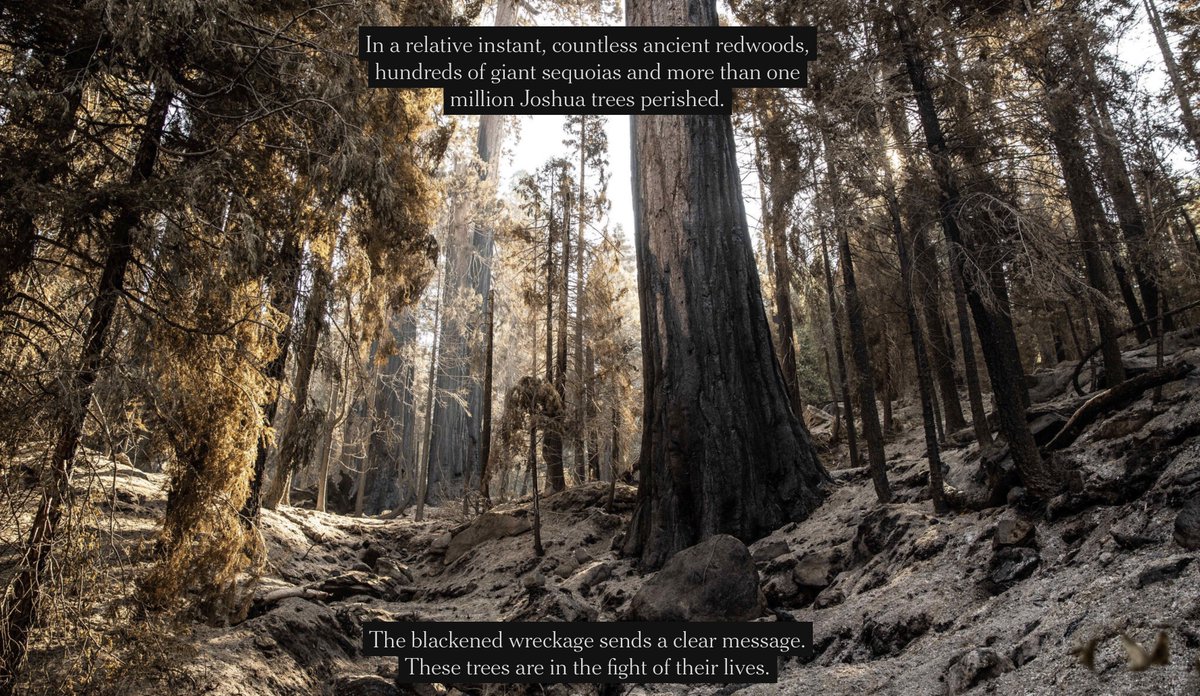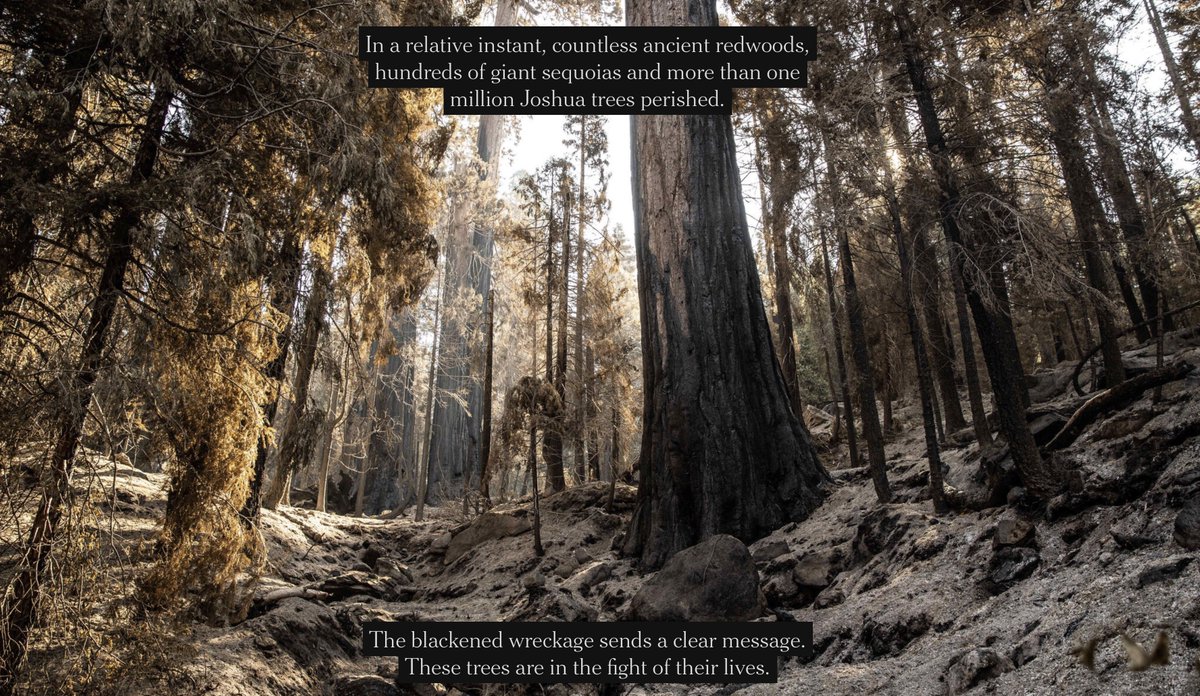As background, I love ancient redwood forests and helped save California's last significant grove of ancient redwoods in private hands between 1996 - 1999
This summer, I was the first to debunk claims that fires had killed ancient redwoods
https://t.co/pBNLb0vZxV
“The protected trees, some 2,500 years old, were nearly wiped out by loggers in the 1800s,” claimed CBS News’
@JonVigliotti “Now human-caused climate change has damaged or destroyed many of these ancient giants.”
@JonVigliotti “Big Basin Redwoods State Park has burned through,” reported New York Magazine’s
@dwallacewells “Some, older than Muhammad, had stood for a thousand years by the time Europeans set foot in North America. The youngest are older than the Black Death."
But every school child who has visited one of California’s redwood parks knows from reading the signs at the visitor’s center and in front of the trailheads that old-growth redwood forests need fire to survive and thrive.
After I debunked the false coverage, other news outlets quickly followed suit
https://t.co/4mbnQ0F92w
Now,
@JohnBranchNYT @nytimes claims:
- "recent fires killed "countless ancient redwoods"
- the fires of "2020 wiped out lots of the old ones"
- "10 percent" of the ancient redwoods "were lost"
@JohnBranchNYT provides *zero* evidence to support his claims
All three statements must either be corrected, with an official correction issued, or
@JohnBranchNYT and
@nytimes should present the evidence
No scientists or journalist has presented evidence for a single ancient redwood tree killed by this summer's fires
Three days ago,
@Ericnpr @NPR did a story quoting the same scientist as
@JohnBranchNYT worrying about the impact of climate change on ancient redwoods
But neither the scientist nor
@Ericnpr claimed a single ancient redwood had been killed by fire
https://t.co/ORns95bUtj
Why do I care? Because I love our ancient redwoods and between 1996 and 1999 I helped to save California's last ancient redwoods in private hands, the Headwaters Forest, a conservation effort I remain proud of.
As an environmental activist, should I support the kind of exaggeration the Times is engaging in?
No!
First, what
@JohnBranchNYT @nytimes have written goes beyond exaggeration. What they have published is simply false.
Second, what they have published is depressing and risks, unnecessarily, contributing to rising anxiety and depression, and therefor *reducing* the desire to protect the natural environment, a phenomenon that decades of social science research confirms
In truth, our forests can survive climate change!
In fact, most trends relating to climate and the environment are going in the right direction, as you can see from my tweet thread from last week:
https://t.co/XEFzqJT062
We must tell our children the truth:
- The future is bright
- Whale, gorilla, penguin & other species are re-bounding!
- We can lift everyone out of poverty while *reducing* our negative environmental impact!
Get the facts!
https://t.co/6aXBoPLjz8
And please buy & read my new, critically-acclaimed, best-selling book, "Apocalypse Never: Why Environmental Alarmism Hurts Us All" — and consider buying copies for your concerned loved ones during the holiday season!
❤️🙏
https://t.co/6aXBoPLjz8

